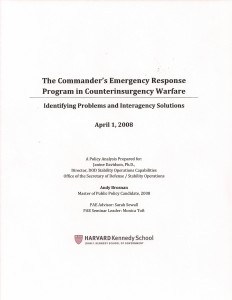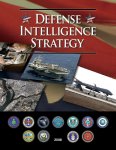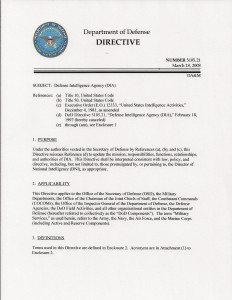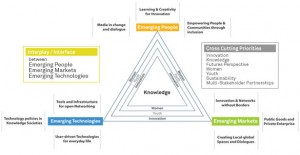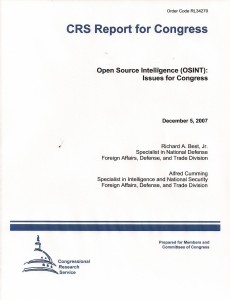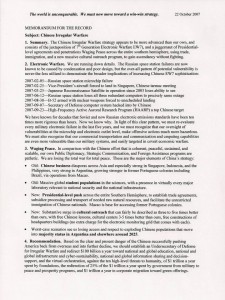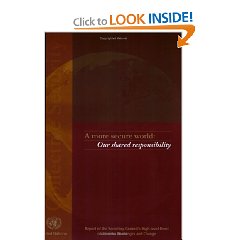
![]() Seminal Work that Redirected My Life
Seminal Work that Redirected My Life
May 8, 2008
United Nations
Together with C. K. Prahalad's The Fortune at the Bottom of the Pyramid: Eradicating Poverty Through Profits (Wharton School Publishing Paperbacks), this book redirected my life. Although I have been an intelligence and operations professional all my life, and spent the last 20 years kicking doors down all over the world to get secret intelligence communities to focus on the 96% of the information they could get legally, ethically, and generally free or at very low cost, I was lacking a strategic frame of reference.
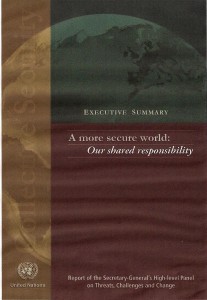
This book literally blew my mind into smithereens. Starting with the fact that LtGen Dr. Brent Scowcorft is one of the last adults still standing with his integrity intact, I was moved to the core of my being by the following list, which is in priority order:
01 Poverty
02 Infectious Disease
03 Environmental Degradation
04 Inter-State Conflict
05 Civil War
06 Genocide
07 Other Atrocities
08 Proliferation
09 Terrorism
10 Transnational Crime
I cannot under-state the force with which this list hit me. In combination with Prahalad's book, which makes the point that capitalism is focused on the billion rich with a one trillion marketplace, while the five billion poor represent a FOUR trillion marketplace, I suddenly realized that the Panel had delivered one side of a strategic matrix for creating a prosperous world at peace.
Despite the existence of other superb books, such as High Noon 20 Global Problems, 20 Years to Solve Them; The Future of Life; and Plan B 3.0: Mobilizing to Save Civilization, Third Edition, no one–no one–had created a list in priority order that calls into question every national security budget on the planet, but especially that of the USA.
These two books led to my decision to sell my for-profit, OSS.Net, and create, with 23 other co-founders, the Earth Intelligence Network, a 501c3 Public Charity, and to commit myself to being intelligence officer to the poor for the remainder of my life.
I will just list the twelve policies and the eight humanities below, all other information is at EIN, and I do not want to distract from other reviews. This book, this list, is the single most important first step in empowering the collective intelligence of the public to the point that we can eradicate corruption, protect our commonwealths, and achieve a prosperous world at peace.
Twelve policies that must be harmonized at the budget level across all Nations and corporations and foundations, and organizations (this is important because governments are organized as stovepipes–it is lunacy to use up water we don't have to grow grain we do not need to create ethanal with food instead of sugar cane, bacteria, or algae):
01 Agriculture
02 Diplomacy
03 Economy
04 Education
05 Energy
06 Family
07 Health
08 Immigration
09 Justice
10 Security
11 Society
12 Water
The eight humanities (this is important because nothing the US or EU do unless we create, within seven years, an EarthGame that helps these dominant demographics avoid our mistakes:
01 Brazil
02 China
03 India
04 Indonesia
05 Iran
06 Russia
07 Venezuela
08 Wild Cards (e.g. Congo)
There are so many books relevant to all of the above I must point to my lists, but want to list just a couple of future-oriented books here, the last being the first by EIN (free online, but lovely here at Amazon):
The leadership of civilization building: Administrative and civilization theory, symbolic dialogue, and citizen skills for the 21st century
How to Change the World: Social Entrepreneurs and the Power of New Ideas, Updated Edition
Collective Intelligence: Creating a Prosperous World at Peace
See also 2008 Chapter: Annotated Bibliography on Reality


